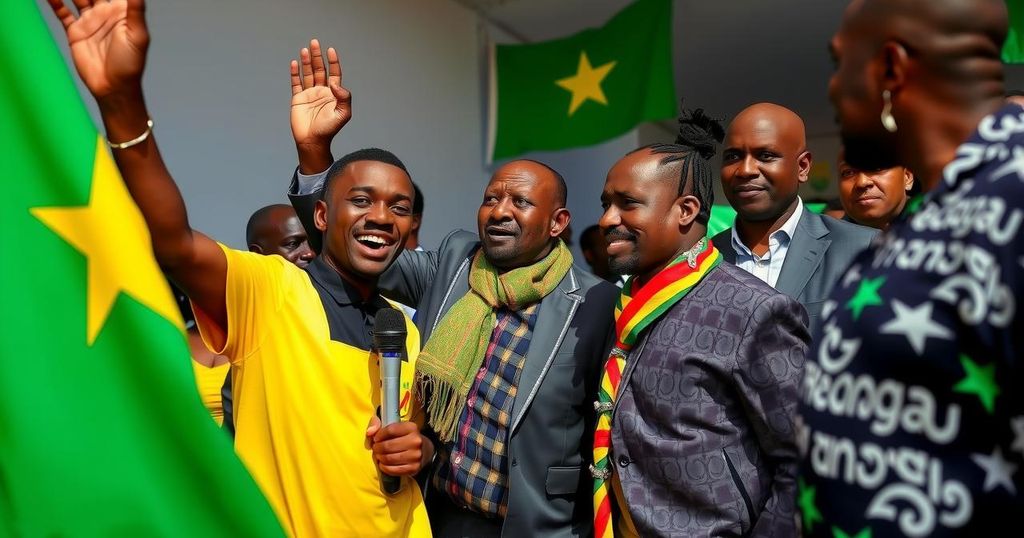Senegal’s Ruling Pastef Party Claims Significant Victory in Legislative Elections
Senegal’s ruling Pastef party has announced a large victory in the legislative elections, securing a mandate to implement reform policies. With 90-95% of ballots counted, the elections proceeded peacefully, affirming President Bassirou Diomaye Faye’s party’s strength against opposition groups. Faye’s administration aims to tackle unemployment and economic issues, although claims of electoral fraud have emerged from opposition factions, reflecting the ongoing political tension in the country.
Senegal’s ruling Pastef party has proclaimed a substantial victory in the recent legislative elections, held on Sunday, thereby securing authority to advance its reform initiatives. Initial counts indicated that 90 to 95 percent of ballots had been processed, showcasing a peaceful voting process throughout the West African nation. Government spokesman Amadou Moustapha Ndieck Sarre expressed gratitude to the Senegalese populace for this significant mandate while results indicated that President Bassirou Diomaye Faye’s party surpassed major opposition groups, reinforcing its control eight months post-election. In March, President Faye had campaigned on promises of economic reform, social equity, and anti-corruption measures, responding to the aspirations of a youthful demographic grappling with high unemployment and inflation. An opposition-led parliament initially posed challenges to the government’s agenda, compelling Faye to dissolve the legislative body in September and schedule early elections in line with constitutional guidelines. Faye’s commitment to a pan-African agenda includes revisiting fiscal contracts and enhancing Senegal’s economic independence. Voter turnout fell short of presidential election levels, indicating a broader political engagement challenge. Senegal’s electorate, numbering approximately 7.3 million, was tasked with choosing 165 members of parliament for five-year terms—a vital indicator of ongoing democratic practices in the country. Both Faye and Sonko urged the importance of peaceful political expression during their voting activities, emphasizing the necessity of maintaining stability and respect for democratic values. Nonetheless, allegations of electoral fraud were raised by the opposition, which expressed significant dissatisfaction with the current administration’s performance and economic policies. Despite the complexities encountered, Faye’s administration has since initiated reforms aimed at public finance transparency and cost mitigation for essential goods. The recently proposed 25-year development plan reflects the government’s ambition to foster long-term economic improvement and social well-being amid ongoing challenges.
The legislative elections in Senegal represent a pivotal opportunity for the ruling Pastef party, which recently ascended to power and seeks to implement its reform agenda amidst significant socio-economic challenges. Following an election cycle characterized by heightened political tensions and the dissolution of the previous parliament, these elections serve as a litmus test for the new administration’s ability to uphold democratic values and meet the population’s expectations for economic stability, particularly among the youth demographic facing unemployment. Additionally, the electoral process is critical not only in shaping parliamentary dynamics but also in reaffirming Senegal’s democratic tradition in a region frequently disrupted by political unrest.
In conclusion, the Pastef party’s claimed substantial victory in the legislative elections positions it to advance its reform agenda, addressing pressing issues such as unemployment and economic disparity. While the peaceful voting process reflects Senegal’s commitment to democracy, skepticism regarding the administration’s effectiveness persists among opposition factions. The government’s initiatives aimed at revitalizing the economy and addressing basic needs will be closely scrutinized, as the population remains alert to the socio-economic challenges that frontiers Senegal today.
Original Source: www.france24.com




Post Comment